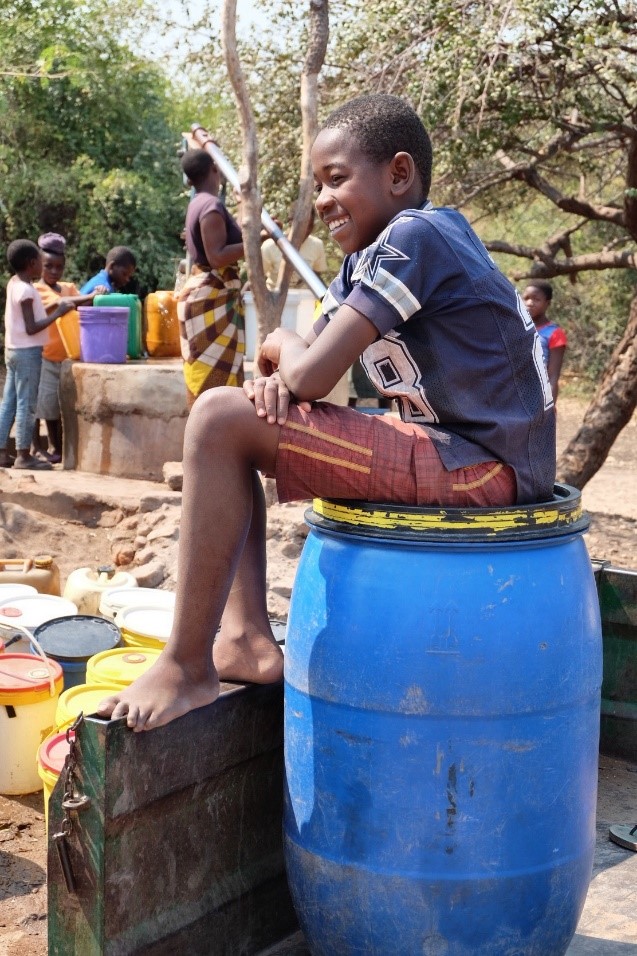Every year during his school holidays, 11-year-old Maphioss visits his grandfather in Kapfudza village on Zimbabwe’s north-west border with Mozambique. Almost 200 km from the capitol city, Kapfudza is a small agricultural village of around 2,000 people; it lies just 300 metres from some of the world’s densest minefields.
These minefields have had a devastating impact on the community, maiming and killing local people, countless livestock, and blocking access to natural resources and valuable grazing and farming land. In recent years, there have been nine recorded accidents in this area including a fatality in 2010, when a man entered a minefield searching for wood. There are likely more that have gone unreported.
Most households in Kapfudza rely on boreholes for clean water, and villagers must pass near or through minefields in order to access water sources. Maphioss’ extended family get their water from a borehole to the north of their village, less than a kilometre from the Mukumbura River. When he is visiting his grandfather, Maphioss is in charge of fetching water for the household.

So Maphioss, the intelligent boy with a quick smile, must travel through one minefield, where clearance has been completed by HALO, and beside another, which is currently in progress, to access the village’s water supply. His parents, familiar with the threat of mines, have warned him of the known, suspected areas.
As of August 2016, HALO has found 3,250 mines and cleared almost 160,000m2 of minefield in the vicinity of Kapfudza including 58 mines, less than 100 metres from where Maphioss is pictured sitting on his family’s ox cart, waiting to haul buckets of water back to their homestead.
When HALO began marking off the area for clearance, Maphioss could actually see that there was a minefield only 60 metres from the borehole and just metres from the path that he travelled on to get there from his grandfather’s village.
Now that the area is being cleared, the boy who dreams of one day being a pilot and journeying around the world, says that he feels good that he and others can finally make a much shorter trip in safety.


